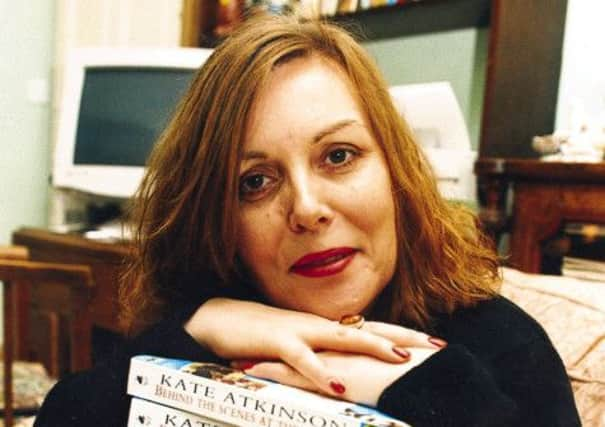Women writers book their place on the winner’s rostrum


The news came just a few days before tonight’s announcement of this year’s winner and reignited the debate as to whether literature really needs and all-female prize.
Jenny Diski was among the first to launch a broadside. Taking to Twitter, the author and reviewer concluded Baileys was the “perfect sponsor for a demeaning fiction prize for women. Doubly patronising,” before adding, “There aren’t any compensation prizes for men...why do women accept consolation prizes?”
Advertisement
Hide AdAdvertisement
Hide AdNovelist Kate Mosse founded the prize in the wake of the all-male shortlist for the Booker Prize in 1991. It was perhaps a little unfortunate that by the time the Women’s Prize for Fiction was ready to unveil its first nominations in 1996, that year of the six authors shortlisted for the Booker, three were women.
However, the presence of Margaret Atwood, Beryl Bainbridge and Shena MacKay, was not necessarily representative of a shift in the balance of power. Of the 24 authors nominated for the four previous Booker Prizes, just four were women and while Diski is not alone in her criticism, there are equal numbers who believe the award, whoever it’s sponsored by, still has a place in the literary world.
“The fact is that even today the vast majority of books which feature in Sunday supplements and literary journals are both written and reviewed by men,” says Dr Susan Watkins, reader in 20th-century women’s fiction at Leeds Metropolitan University.
The claim is born out by statistics. In the London Review of Books, which Diski herself contributes to, 73 per cent of the books reviewed are by male authors, 27 per cent by women; in the TLS, 75 per cent are by men, 25 per cent by women.
Advertisement
Hide AdAdvertisement
Hide Ad“Ultimately it’s about encouraging diversity,” says Dr Watkins. “I honestly believe it gives authors, who would otherwise disappear into the shadows, a platform. We now have prizes for African writing, for Commonwealth authors and in many ways the Women’s Prize for Fiction has a much greater scope. The only three qualifications for entry are the author must be female and the book written in English and published in the UK.”
While the award may have previously championed some lesser known female writers, this year it shares one thing in common with pretty much every literary award handed out in recent months – Hilary Mantel is favourite.
Bring Up The Bodies has already scooped the Booker and the Costa Book Award, forcing the likes of Will Self to applaud politely as Mantel, a visiting lecturer at Sheffield Hallam University, made yet another acceptance speech, but Dr Watkins is not going with the bookies’ choice.
“The shortlist is incredibly strong, but while Hilary Mantel has already won the Booker twice before and Zadie Smith’s new novel, NW, is a wonderful read, my hot tip is Kate Atkinson’s Life After Life.
Advertisement
Hide AdAdvertisement
Hide Ad“Atkinson is known for her gripping crime novels, but has always had a literary bent. The premise of her latest novel is what would you do if you could live your life again and again. Opening in 1910, it explores the groundhog day notion as central character Ursula Todd relives her life again and again and not only poses the question, if you could change anything what would it be, but explores the repercussions of even the smallest decisions. The reviews have been brilliant and well deserved, although I will say now that I don’t always pick the winner.
“If Mantel wins she will have completed an unprecedented hat trick and while there will be inevitable criticism of her monopolising the awards, Bring up the Bodies is an incredible piece of work and any backlash would be entirely unjust.”
The official announcement will be made at a ceremony at London’s Royal Festival Hall this evening and the winning author will not only walk with a cheque for £30,000, but also the knowledge that sales of both the chosen book and their back catalogue are guaranteed to soar.
“Having a sticker on front of a book which says ‘winner of the Women’s Prize for Fiction’ basically says ‘buy me’,” says Dr Watkins. “But more than that it is a celebration of writing and that’s something we should all want to support.”